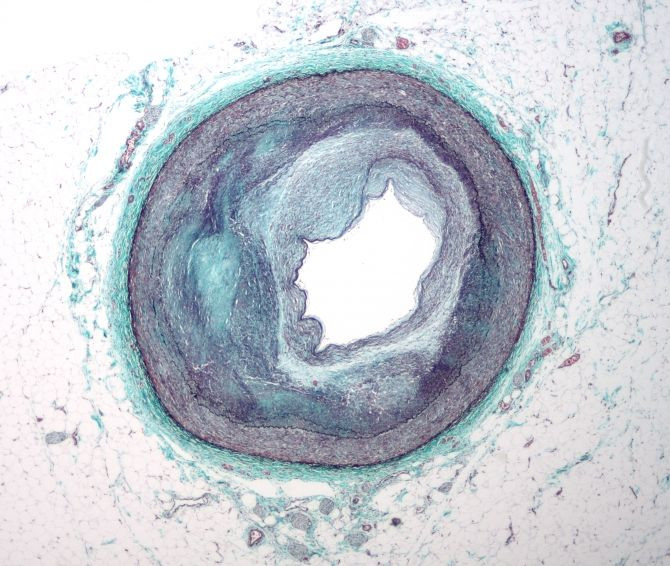Researchers Convert Fat Cells From Liposuction Into Blood Vessels

The much-maligned body fat tissue may be making a comeback. Researchers have turned adult human stem cells into blood vessels – using body fat obtained from liposuction.
Current technology requires thousands of patients with cardiovascular diseases to have vessels grafted into their bodies to reroute the blood from the blocked tubes.
The procedure does not come without its own set of problems. Most importantly, like with any transplant of a foreign substance, the body can reject the vessels, causing further problems.
With this new procedure, led by Matthias Nollert, the lead author of the study and associate professor at the University of Oklahoma School of Chemical, Biological, and Materials Engineering, rejection would be impossible. The stem cells would come from the body of the patients themselves, and the body would not see the new vessels as foreign. What’s more, fat tissue is a remarkable source for adult stem cells.
Other vessels developed from other parts of the body come with risks of clotting and failing to work normally. Nollert, says that he does not think that will be a problem with these new blood vessels. He says they would contract normally and would prevent the accumulation of blood platelets that cause the space in blood vessels to narrow.
In the study, adult stem cells from fat were turned into muscle cells. They were then “seeded” in a very thin collagen membrane. As the cells multiplied, the researchers rolled them into thin tubes that matched the diameter of human blood vessels. Within a few weeks, they were fully functional.
While the technology is at least five years away from use in people, these new capacities would be a huge deal for the millions of people who suffer from cardiovascular diseases, particularly the elderly, obese, and diabetic patients that researchers are targeting. Researchers hope to test the mechanism in animals within six months.
Nollert and his colleagues presented his findings at the American Heart Association’s Basic Cardiovascular Sciences 2012 Scientific Sessions in New Orleans during this week.



























